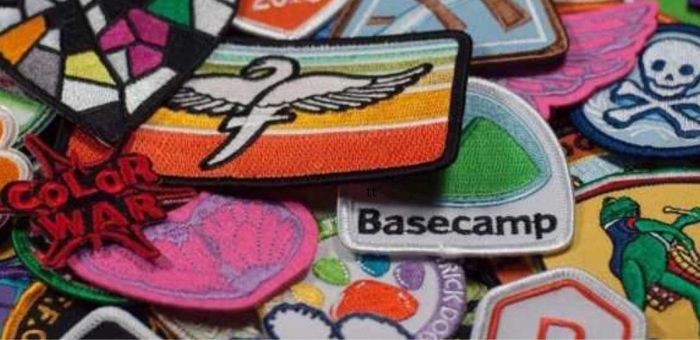

Custom patches are a great way to personalize your clothing, gear, and accessories. Whether you're looking to add a logo to your jacket or showcase a design on your backpack, the type of backing you choose for your patch can make a huge difference in how well it stays in place and how easy it is to apply.
In this guide, we’ll explore the most common patch backing options, so you can make the best choice for your needs.

When it comes to custom patches, the backing is just as important as the design. The right patch backing ensures your patch stays securely attached and retains its appearance over time. Without the proper backing, your patch might fall off, peel, or wear down.
Whether you're creating patches for fashion, work uniforms, or promotional use, understanding patch backings is essential for achieving the best results. Choosing the right backing can also impact the ease of application. Some backings are quick and easy to apply, while others may require more time and effort.
For more information on embroidered patch options, you can check out Unique embroidered patches.
Iron-on backing is one of the most popular and easy-to-use options. As the name suggests, it allows you to attach your patch by simply using an iron to heat-activate the adhesive on the back of the patch.
Ideal for light to medium fabrics like cotton or polyester, such as on t-shirts or hats.
Iron-on patches are a great option for DIY projects or quick fixes when you need a simple attachment solution.
Sew-on backing is the most durable option. With this backing, the patch is stitched directly onto the fabric.
Perfect for uniforms, jackets, and outdoor gear that need a long-lasting attachment.
Sew-on patches are perfect for heavy-duty use, especially when you need a patch that will stay in place for a long time.
Velcro-backed patches are versatile and removable, making them great for applications where you might want to swap patches frequently.
Ideal for military uniforms, tactical gear, or sports teams.
Velcro patches allow for customization and flexibility since you can easily remove and replace patches as needed.
PVC patches are made of rubberized material and feature a unique backing that makes them durable and flexible.
Suitable for casual clothing, fashion accessories, or bags.
PVC patches are a great option if you're looking for something that's both stylish and durable, especially for outdoor use.
Choosing the right patch backing depends on several factors, such as the fabric you are applying the patch to, the intended use of the patch, and how long you want it to last.
Light fabrics like t-shirts or hats are great for iron-on patches, while heavy-duty materials like jackets or backpacks will benefit from sew-on patches.
If you're looking for something that will stand the test of time, sew-on or Velcro patches are great choices for durability.
If you're looking for an easy, quick solution, iron-on patches are your best bet. For something that needs to withstand a lot of wear, sew-on or Velcro is a better option.
If you're unsure about which backing to choose, consider your patch’s intended use. For instance, if you're creating patches for outdoor or work uniforms, sew-on or Velcro will likely be your best bet. For fashion items or simple DIY projects, iron-on or PVC patches can work just fine.
Using too much heat or not enough pressure can cause the patch to peel off. Always follow the instructions carefully.
Make sure your stitches are tight enough to hold the patch securely in place.
Not properly securing the Velcro can cause the patch to detach easily.
If you're looking to purchase custom patches with various backing options, you can visit Custom Patches in USA - MegaPatches.Com, where you'll find a wide selection of custom patches and backing options for all your needs.
Choosing the right patch backing is an important step in ensuring your custom patches stay securely attached and look great. Whether you go for iron-on, sew-on, Velcro, or PVC, make sure the backing you select fits the intended use of the patch.
Now that you know the differences between patch backings, you can confidently choose the right one for your next project.
For more on different custom patch options, don’t forget to explore Unique embroidered patches to get ideas for your next design!